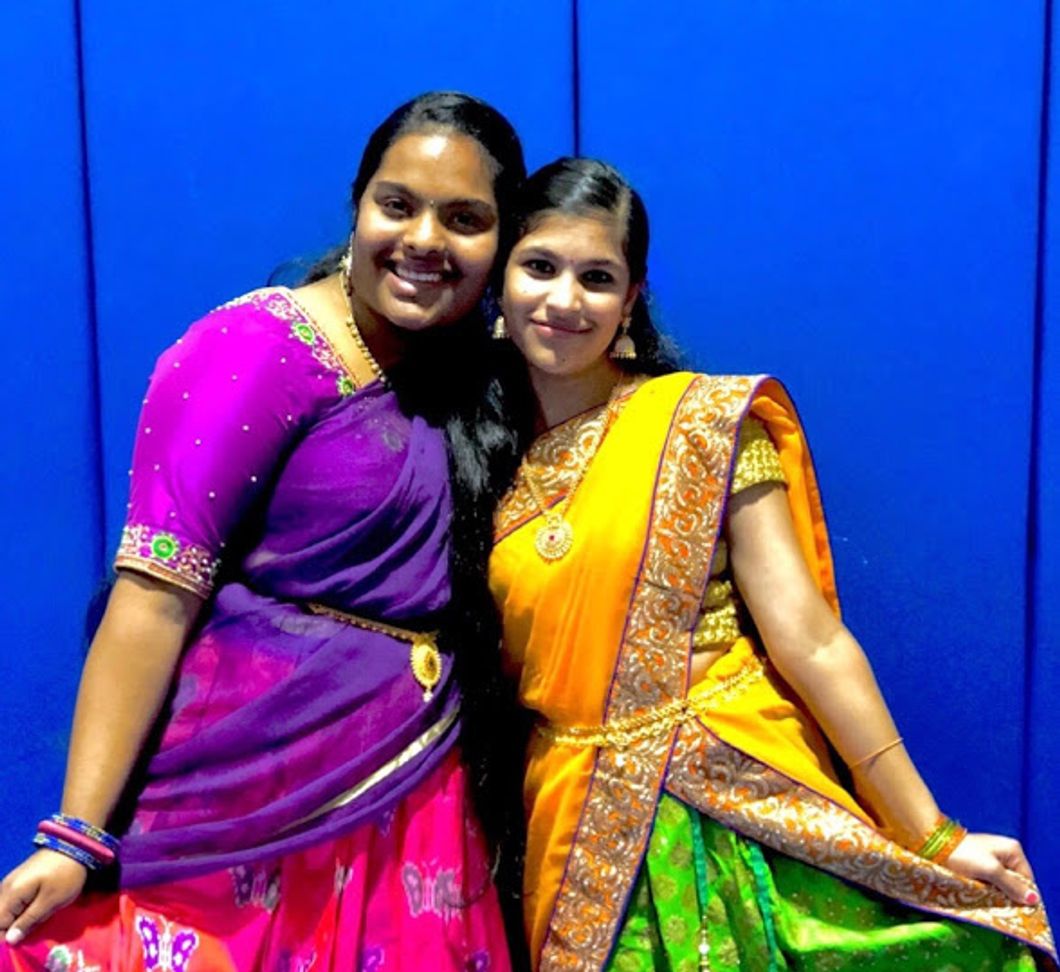f you talk to a man in a language he understands, that goes to his head. If you talk to him in his language, that goes to his heart. — Nelson Mandela
The large subcontinent of India stands out with its acres of tea plantations and rice fields. Walk along the dirt roads and you'll see people with smiles on their faces, enjoying a cup of tea, a cool drink or just the fresh atmosphere around them. Shops line these roads with tasty salty snacks. And your nose is instantly filled with the scent of curry powder, chili and coconuts.
When you close your eyes, breathing in all the scents of this beautiful island, you understand that home isn't just a place; it's a feeling. It's the warmth that spreads from your heart to your roots and your toes. It's the instant connections that surface from the people around you, with their genuine kindness. It's the understanding you gain of what it means to truly belong.
I may have been born and raised in the States, but my roots truly do go back to India. Growing up, I struggled with my identity, most times I was embarrassed, and with the current political climate, I've become more and more aware of my cultural identity. I've come to understand my roots and through my journeys to India, I've gained a greater awareness of who I am and how precious my cultural identity is.
I grew up in a very Indian household, surrounded by Indian art, food, the Hindu religion and the Telugu Language (One of the various different languages found in India). I may not have appreciated back then, but now I thank my parents every day for helping keep our culture alive despite having migrated to the States and dealing with the ever-constant pressure of assimilation. I assumed many Indian families were just like mine, cultured and traditional, but I was wrong.
Within the Indian community exists the notion that speaking our native language indicates that we are of lower social standing. As essential as the English language is considered superior to the all Indian language, many people are embarrassed to not only speak their native language but to teach it to their children. And I wonder how can culture, tradition and values be shared if the thing that links all of these together, language, is missing?
Telugu derived from trilinga, as in Trilinga Desa, "the country of the three lingas." It is a complex language that utilizes an alphabet consisting of so many letters. Speaking the Telugu Language activates about 72,000 neurons in your body, highest for any language in the world proven by science, but somehow even when visiting India, it's clear that the language is slowly dying. How can the Telugu people continue to exist if one day their language disappears?
Language and culture simply cannot exist without each other.
During my travels to India, I noticed that those who spoke in English were given more respect than those who spoke in Telugu, as if those who spoke English were clearly from wealthier and more affluent families. Those who spoke English were given attention to immediately in restaurants and hospitals, whereas those who didn't were ignored and pushed aside. When I am in my home country, I speak my language. If I am in the presence of someone who is from India, I speak our language because the same sentiments and feelings can't be expressed in English.
I am proud to be speaking a language like Telugu. But I am embarrassed to say that I am from a country that values the English language over their native language. I am sickened by the fact that English is seen as being superior to the wonderful and unique language that has been spoken for centuries in my land, and this notion is directly linked to the British colonial period in India.
The Telugu language is what makes us unique and allows us to possess genuine kindness and hospitable nature that many people compliment the people of India for having. Unfortunately, the appreciation for this language will come at a time when the language is all but lost, and it is then will those remaining will realize and understand the importance and uniqueness of it. Because when we lose our language, we are losing more than just that. We are losing poems, stories, songs and all the very things of importance.
In our attempt to confine ourselves to the standard that those who don't speak English are illiterate in global terms, India as a whole is losing its cultural identity. This doesn't mean to discredit the power of the English language but to show that one's ability to speak or not speak the language should not be a representation of that person's social class nor dictate how they are treated. Why can't children learn both languages simultaneously, especially when there is research showing that when bilingualism is encouraged at younger ages? A language is a form of communication, a means to express ourselves. Not a means to show off our social status.
My love for my culture and heritage stems from the Telugu language, my mother tongue. Being born and raised in the States, where English predominates society, I have come to appreciate the unique lens that multiple languages have been able to give me through the years. So if you ever find me in India, don't be surprised if I speak only in Telugu. Even if I am spoken to in English, my response will still be in my language.
































